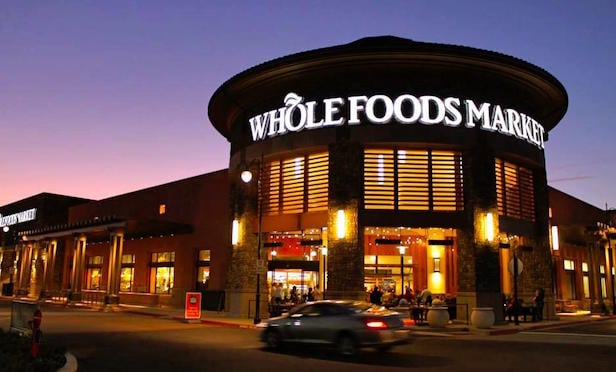
NEW YORK CITY—Beset by non-stop competition from online channels, retail real estate is often seen as a risky investment proposition these days. Yet the numbers don't quite bear out this thesis, according to research from MSCI.
“Despite the negative headlines, retail remains a sizable and important part of the investment landscape, accounting for nearly 22 cents of every dollar in contracted rent,” according to MSCI. An analysis of property income risk and performance as of this past June shows that although the sector underperformed commercial real estate overall in the second quarter, only the Industrial sector produced a lower vacancy rate and income returns have held steady.
Furthermore, at a high level, US retail leases “appeared well positioned at mid-year, with potential gains on lease renewals averaging over 16%, a level far ahead of suburban offices or industrial properties,” according to MSCI's report. However, “at a more granular level it is clear that the risks are not evenly distributed across metropolitan markets and tenant types.”
From a credit standpoint, the amount of high risk income for retail (0.3%) is below that of office (0.5%), and the average tenant risk score is below industrial (3.4 and 3.5, respectively), according to MSCI. Yet that risk varies according to tenant type: lower than average for consumer staples such as groceries, pharmacy/optical and homewares, and slightly higher among tenants with “more elastic demand,” such as full-service dining.
Retail leases at midyear had slightly longer remaining terms than the national average for all property types: 51% of all leases nationally were set to expire by 2022, compared to 48% for retail. If expiring leases were renewed at market rents, the average US lease contract would rise by 14% compared to nearly 16% for retail properties, MSCI says.
Here again, though, MSCI sees “reversionary potential” varying considerably across tenant types. Grocery leases are positioned for average markups of 38% but fast-food dining and financial storefront leases are facing potential negative reversion of 19% and 14%, respectively, according to MSCI.

“Despite the negative headlines, retail remains a sizable and important part of the investment landscape, accounting for nearly 22 cents of every dollar in contracted rent,” according to MSCI. An analysis of property income risk and performance as of this past June shows that although the sector underperformed commercial real estate overall in the second quarter, only the Industrial sector produced a lower vacancy rate and income returns have held steady.
Furthermore, at a high level, US retail leases “appeared well positioned at mid-year, with potential gains on lease renewals averaging over 16%, a level far ahead of suburban offices or industrial properties,” according to MSCI's report. However, “at a more granular level it is clear that the risks are not evenly distributed across metropolitan markets and tenant types.”
From a credit standpoint, the amount of high risk income for retail (0.3%) is below that of office (0.5%), and the average tenant risk score is below industrial (3.4 and 3.5, respectively), according to MSCI. Yet that risk varies according to tenant type: lower than average for consumer staples such as groceries, pharmacy/optical and homewares, and slightly higher among tenants with “more elastic demand,” such as full-service dining.
Retail leases at midyear had slightly longer remaining terms than the national average for all property types: 51% of all leases nationally were set to expire by 2022, compared to 48% for retail. If expiring leases were renewed at market rents, the average US lease contract would rise by 14% compared to nearly 16% for retail properties, MSCI says.
Here again, though, MSCI sees “reversionary potential” varying considerably across tenant types. Grocery leases are positioned for average markups of 38% but fast-food dining and financial storefront leases are facing potential negative reversion of 19% and 14%, respectively, according to MSCI.
Want to continue reading?
Become a Free ALM Digital Reader.
Once you are an ALM Digital Member, you’ll receive:
- Breaking commercial real estate news and analysis, on-site and via our newsletters and custom alerts
- Educational webcasts, white papers, and ebooks from industry thought leaders
- Critical coverage of the property casualty insurance and financial advisory markets on our other ALM sites, PropertyCasualty360 and ThinkAdvisor
Already have an account? Sign In Now
*May exclude premium content© 2025 ALM Global, LLC, All Rights Reserved. Request academic re-use from www.copyright.com. All other uses, submit a request to [email protected]. For more information visit Asset & Logo Licensing.








